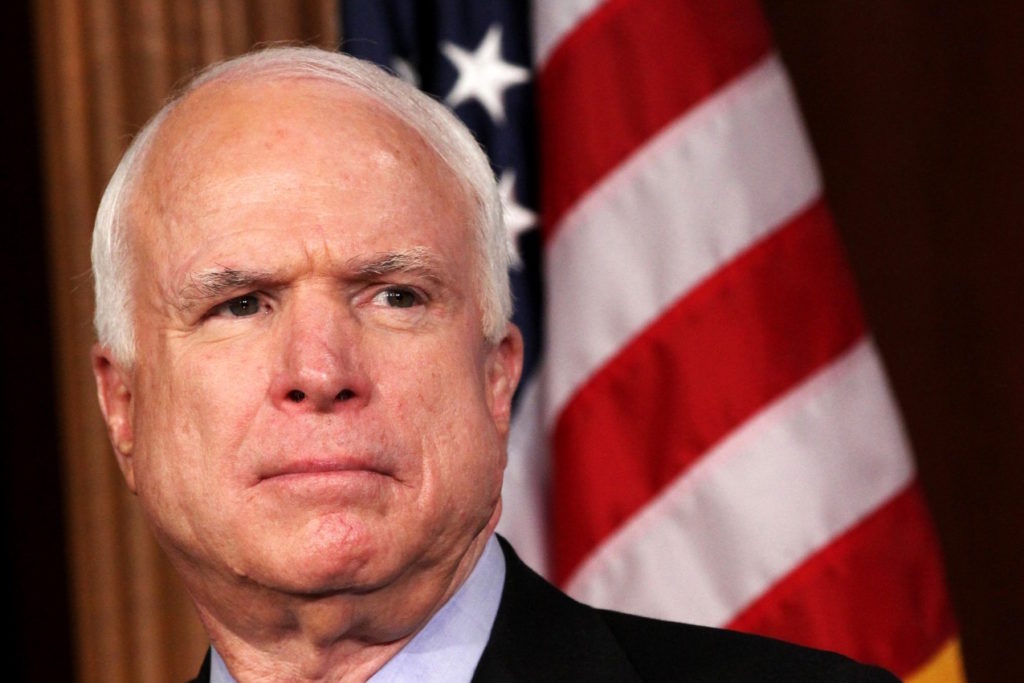Donald Trump finds a whole new way to lose to John McCain

One of the most memorable lines from Star Wars is Obi-Wan Kenobi’s warning to Darth Vader: “If you strike me down, I shall become more powerful than you can possibly imagine.” While this has a specific meaning in the Star Wars universe, the general idea that one’s influence can survive death applies to our world. In fact, we are seeing it play out in the saga of Donald Trump and John McCain – which was furthered yesterday by the bizarre WSJ report about Trump’s handlers having recently disguised the USS John McCain so it wouldn’t upset Trump. But there’s more to the story.
A long time ago, in a conflict far, far away, John McCain earned medals for leading raids against key Vietnamese targets. When McCain’s plane was shot down in 1967, he was imprisoned at the “Hanoi Hilton.” After some months there, McCain refused an opportunity for release based on preferential treatment, then endured five more years of torture.
By contrast, our commander-in-chief avoided Vietnam because “I had a doctor that gave me a letter — a very strong letter on the heels,” Trump said in a 2016 New York Times interview. By the time McCain returned home in 1973, Trump was battling highly credible claims of race discrimination in his real estate business. Decades later, candidate Trump claimed McCain is “not a war hero” at an Iowa Family Leadership Summit in 2015. He then suggested McCain is a war hero only because he was captured. “I like people that weren’t captured, okay?” he quipped to laughter and applause.
This weekend, we heard more from McCain when fellow Senator Amy Klobuchar revealed he recited a list of dictators’ names to her at Trump’s inauguration “because he knew more than any of us what we were facing as a nation.” McCain’s daughter, Meghan, tweeted this response: “On behalf of the entire McCain family – @amyklobuchar please be respectful to all of us and leave my fathers legacy and memory out of presidential politics.” Despite Meghan’s disapproval, it is reasonable to assume that McCain expected, if not wanted, Klobuchar to mention what he did at an appropriate time. Also, no one, including Meghan, is claiming that McCain asked Klobuchar to stay silent, and if McCain was afraid of others learning what he said, he probably would have kept it to himself. More than two years later, Klobuchar told this story over Memorial Day weekend as America focuses on the sacrifices made by our brave service members.
Neither a fan nor a trusted ally of Trump, McCain prepared a farewell statement that was released following his death in August, in which he said we weaken our greatness when we “hide behind walls, rather than tear them down.” McCain also excluded Trump, the sitting President from his own party, from attending his funeral. Meanwhile, Trump could not bring himself to praise McCain, at first ordered only a brief lowering of the flag, and even complained about not being thanked for his funeral. McCain spoke to us again this weekend, and we likely have not heard the last from him. Like the fictional Kenobi, McCain remains a force to be reckoned with even after death.

Ron Leshnower is a lawyer and the author of several books, including President Trump’s Month
